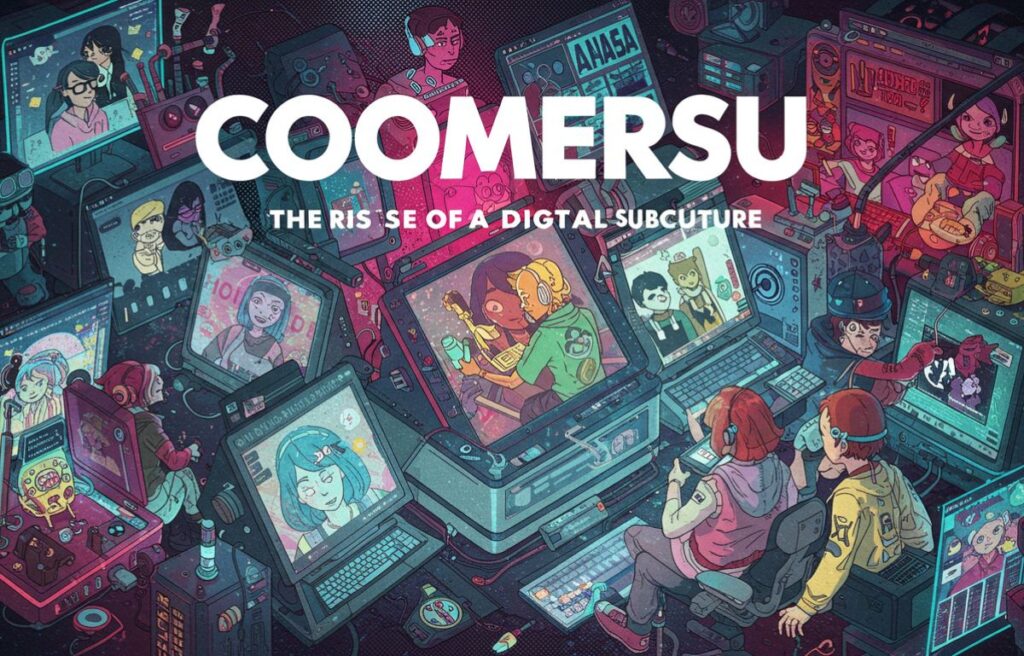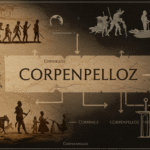In recent years, internet culture has birthed a variety of slang terms and subcultures, each carrying a distinct meaning and societal impact. Among these emerging terms is coomersu—a word that has gained traction across online forums, social media, and meme communities. Coomersu, a blend of “coomer” and “consumer,” encapsulates a specific archetype within the digital age: one deeply absorbed in consumption, often of media or products, driven by compulsive online behaviors.
This article dives deep into the world of coomersu, exploring its origins, characteristics, societal implications, and the fine line it walks between humor and social critique.
What Does Coomersu Mean?
Understanding the Coomersu Concept
The term coomersu combines two internet concepts:
-
Coomer: Originally a meme character that represents someone who is overly addicted to instant gratification, especially through adult content or dopamine-driven habits.
-
Consumer: A broader term for someone who engages heavily in materialism or product consumption, often shaped by modern capitalism.
Together, coomersu reflects a person overwhelmed by digital consumerism—frequently indulging in video games, streaming content, merchandise, NFTs, and other online addictions.
Coomersu and the Meme Culture
This term isn’t used merely to label someone, but rather serves as a critique—sometimes humorous, other times serious—of overindulgent digital lifestyles. Memes about coomersu often depict exaggerated personalities addicted to collecting anime figurines, buying limited-edition game releases, or hoarding tech gadgets while neglecting real-world responsibilities.
Origins of the Coomersu Phenomenon
From Coomer to Coomersu
The idea of the coomer started as a humorous jab at dopamine-chasing individuals, especially those spending excessive time watching adult content or endlessly browsing Reddit. As internet culture evolved, so did its memes. Around 2020, as consumer habits shifted further toward digital consumption—especially during the COVID-19 pandemic—online communities began fusing “coomer” and “consumer,” giving rise to coomersu.
4chan, Reddit, and Discord Influence
Subcultures like coomersu often originate in communities like 4chan’s /r9k/ board or Reddit forums, where users critique consumerism, modern masculinity, and isolation. The term spread rapidly through Discord channels and Twitter, where meme creators embraced it as shorthand for a certain online personality.
Characteristics of a Coomers;u
Digital Overconsumption
The most defining trait of a coomersu is relentless digital consumption. This doesn’t always refer to tangible items—it often includes hours of streaming, binge-watching anime, grinding video games, or scrolling endlessly on TikTok.
Emotional Isolation
Many memes about show individuals using consumption as a substitute for social interaction or real-life fulfillment. They depict people disconnected from reality, finding comfort in collectibles, fictional worlds, or online influencers.
Brand Obsession and Hype Culture
Coomersu behavior also includes obsessing over brand loyalty or being a part of hype culture—preordering every new gadget, buying unnecessary merch, or staying glued to tech release cycles. This compulsive spending reflects a deeper emotional attachment to brands, often as an identity substitute.
Cultural Impact of Coomers;u
Satire or Social Problem?
Coomersu, while mostly humorous, brings up serious questions about digital addiction, consumerist capitalism, and alienation in modern society. It forces reflection on whether this meme archetype is an exaggerated stereotype or a real societal issue amplified by online living.
Generational Identity
Many argue that coomersu behaviors are especially common among younger generations, particularly Gen Z and late Millennials. Growing up with smartphones, constant connectivity, and instant gratification platforms may have created fertile ground for lifestyles to flourish.
Marketing and Coomersu Culture
Ironically, brands have started marketing to -types by leveraging the same hype culture and exclusivity tactics. Limited-edition products, influencer merchandise, or gamified shopping experiences tap directly into the behavioral patterns highlighted in the meme.
The Psychology Behind Coomers,u
Addiction to Dopamine Loops
Coomersu behavior often ties back to dopamine-driven actions. Just like social media apps are designed to keep you engaged, so are gaming platforms, online shopping experiences, and bingeable content. These “dopamine loops” encourage repeated behavior, reinforcing tendencies.
The Comfort of Escape
For many, adopting a coomersu lifestyle is about escapism. The real world—with its economic pressures, loneliness, and uncertainties—can be overwhelming. Immersing oneself in digital spaces, collecting merchandise, and building virtual identities offers a sense of control and comfort.
Criticism and Controversy
Toxic Stereotyping
Some believe the coomersu label unfairly targets socially awkward or introverted people. Not everyone who enjoys games or anime fits this stereotype, yet the meme culture can amplify harsh caricatures that perpetuate stigma.
Gender Bias and Gatekeeping
Critics also argue that memes sometimes gatekeep what hobbies are considered acceptable, especially for men. While originally a critique of masculine escapism, the term has sometimes been used to shame harmless interests, turning satire into exclusion.
Moving Beyond Coomers,u Behavior
Mindful Consumption
Awareness is the first step in overcoming habits. Taking breaks from media, setting spending limits, and diversifying hobbies beyond digital realms can help create balance. Mindful consumption means engaging with content intentionally, not compulsively.
Real-World Engagement
Encouraging real-life connections, outdoor activities, or creative pursuits can counteract coomersu tendencies. Simple actions like journaling, volunteering, or attending local events can help reconnect individuals to tangible experiences.
Digital Detox Strategies
To reduce behavior, consider implementing strategies like:
-
Screen time tracking apps
-
Social media breaks
-
Subscription audits
-
One-in, one-out rules for purchases
These tactics promote conscious engagement and reduce overindulgence.
Final Thoughts on Coomers,u
The coomersu archetype reflects more than just a meme—it’s a mirror of our digitally saturated lives. While often exaggerated for humor, it brings up real concerns about overconsumption, mental health, and identity in the modern age. Rather than dismissing the concept, it’s important to understand the motivations behind such behaviors and explore healthier ways to navigate our online existence.
Whether we laugh at the meme or recognize parts of ourselves in it, it offers a valuable commentary on how internet culture shapes who we are—and who we might become.







